Author:
Green Steps
Short summary:
Read about the new Workaway volunteering program with Green Steps and the importance of informal learning to develop useful competences in our modern society.

Would you like to spend some meaningful time in Austria and volunteer for our organization just for a short period of time? If yes, we have good news! Starting from this summer, you can join us as a Workaway volunteer!
Workaway is a platform that allows members to arrange homestays and cultural exchanges. Workawayers are expected to volunteer around 4 hours per day in exchange for accommodation and food, which is provided by their host.
Its mission is to create a global community of travellers who contribute to the places they visit. With thousands of users, Workaway has grown organically through word of mouth without active advertising.
Workaway challenges the traditional model where companies charge high fees for volunteer placements, empowering individuals to arrange their own stays, checks, and travel arrangements, thus saving money.
In Green Steps we felt the need to enlarge our community by including travellers with an interest in education and nature! You can view our Workaway profile by clicking here.

We offer to our volunteers a large range of trainings to help them becoming place-based Nature Guides. The volunteers are free to stay from a minimum of 2 weeks to a maximum of 3 months, and based on how long they stay they follow different trainings:
▪ 2 weeks: BFG Guardian level 2 + ARK Community Mentor
▪ 4 weeks: all of the above + BFG Guardian level 3 + ARK Commons Mentor
▪ 3 months: all of the above + ARK Ecoregion Mentor
Plus, they are all invited to participate for free to our online Nature Guide Training Level 1 prior their arrival.
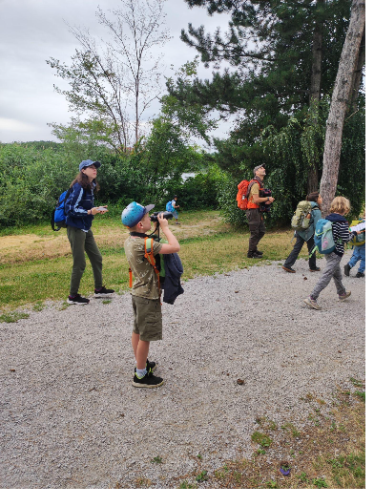
Workaway is not only an affordable opportunity to travel and experience new cultures, but also a way to learn new skills through informal learning, exactly like the European Solidarity Corps (ESC).
Informal learning is crucial to complement the skills that we develop through the formal education system, by supporting continuous personal and professional growth, and by fostering a more adaptable, creative, and inclusive society.
Nowadays, there are several connected social phenomena which make the recognition of informal learning experiences increasingly important. We outline here a few of them without any requirement of completeness or academic methodology:
1. Inflation of University Credentials
The inflation of university credentials, i.e. a phenomenon which makes even graduation certificates from ivy league universities relatively worthless, because more and more individuals get access to them. While a university degree still induced secure employment in the 1980s (in the Western world), it does nowadays often mean unemployment. Many national education systems have tried to counteract this inflation and lack of employability with universities of applied sciences which offer a more practical curriculum with corporate internships as integral part thereof.
[ https://en.wikipedia.org/wiki/Credentialism_and_educational_inflation ]
2. Exponential Transformation of Labor Markets
The exponential transformation of labor markets through new technologies renders many skills and competences which we acquire in traditional curricula obsolete. Increasing automation and computerization, in particular the recent development in AI research and application has initiated a collapse of our labor markets, in particular in the tertiary sector which now accounts for more than 80 percent of jobs in advanced economies. In a few years from now, we will live in societies with small service industries and remaining jobs in the secondary sector will require much retraining and constant re-qualification to manage exponential technological change.[ Martin Ford: The Rise of the Robots – Technology and the Threat of a Jobless Future]
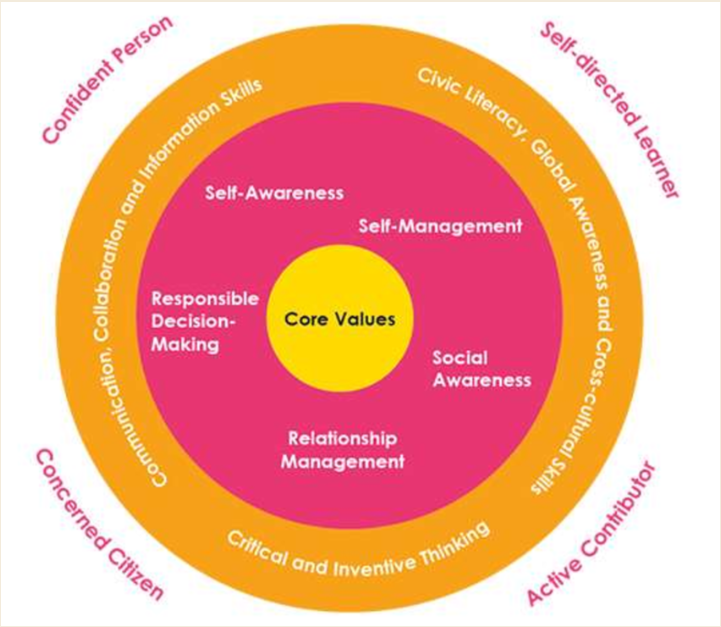
3. Delayed Start of Paid Work
While most children had no access to formal education and entered the labor market at age 4 at the beginning of the industrial revolution, it is nowadays normal in advanced economies that youth spends 12 years in school and another 5-6 years in university. Entering the labor market at age 25 or 30 is no exception anymore if scholarships or funding from parents allow such a long education term. Moreover, many university graduates need to take several unpaid internships after graduation until they get a paid job with full social benefits – even if they aim to enter the labor market early on.
4. Formal Education and Power Structures
Education for all was in the age of enlightenment an offering parts of the ruling class made to the rest of society in order to achieve an overall better society. Philosophers such as John Locke proposed the idea that knowledge is obtained through sensation and reflection. This proposition led to Locke's theory that everyone has the same capacity of sensation, and, therefore, education should not be restricted to a certain class or gender. Prior to the 17th and 18th centuries, education and literacy were generally restricted to males who belonged to the nobility and the mercantile and professional classes.
The aspirations of the enlightenment era were however never fully implemented, and education remained a mechanism for the ruling class to regulate the access to wealth and power. The need of nation states to prosper economically and defend its interests geostrategically defined since the beginning of the industrial revolution national curricula and put a focus on the acquisition of STEM competences. The triangle of science, technology and power has become the dominating theme for formal education. [ Yuval Harari: Sapiens – A Brief History of Humankind]
With the transformation of nation states into supranational entities like the EU and the world globalizing into a single ecosystem which we need to protect, informal competences like empathy and ecological awareness acquire a cutting edge over what has been considered formal education during the last 200 years. Formal education systems are however slow to adapt to this transformation or blatantly ignore it – as e.g. below World Economic Forum graph shows.
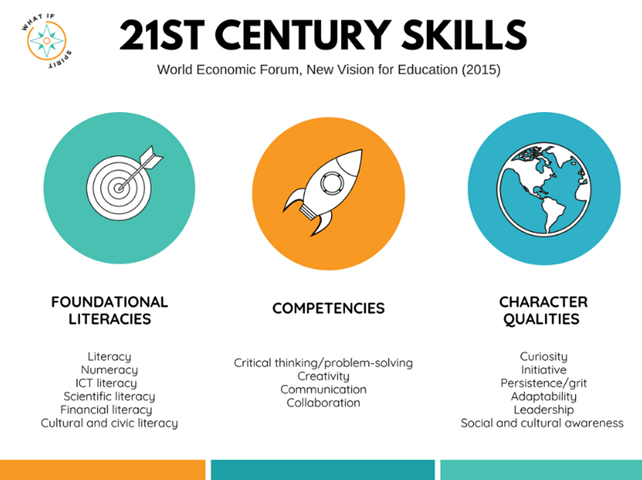
It is paramount to maintain the premises of the enlightenment era: everyone has the same capacity of sensation, and therefore, holistic education must not be restricted to a certain class or gender.
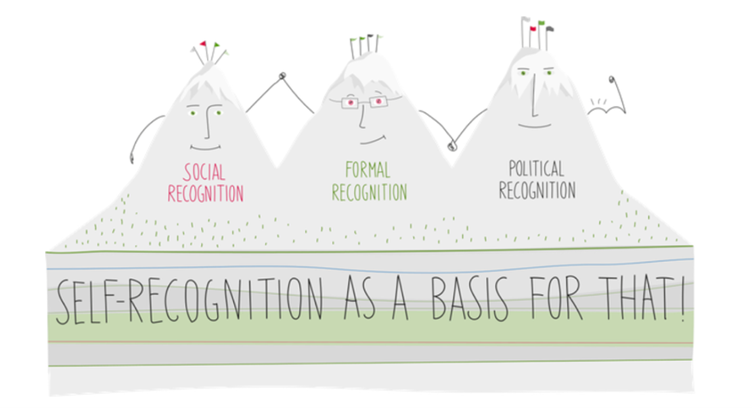
5. Self-recognition as door to universal recognition
The mechanistic acquisition of formal degrees for the sake of academic titles must be made obsolete. It is crucial that youth recognize the intrinsic value of informal experiences – short or long term. Self-recognition is the very first step which ultimately leads to universal recognition.
Within Green Steps, we have developed as an extension of the European Youthpass a method which helps youth to evaluate and appreciate informal learning experiences. Youthpass 2.0 applies scaling questions to 12 categories of competences which can be acquired during learning experiences.
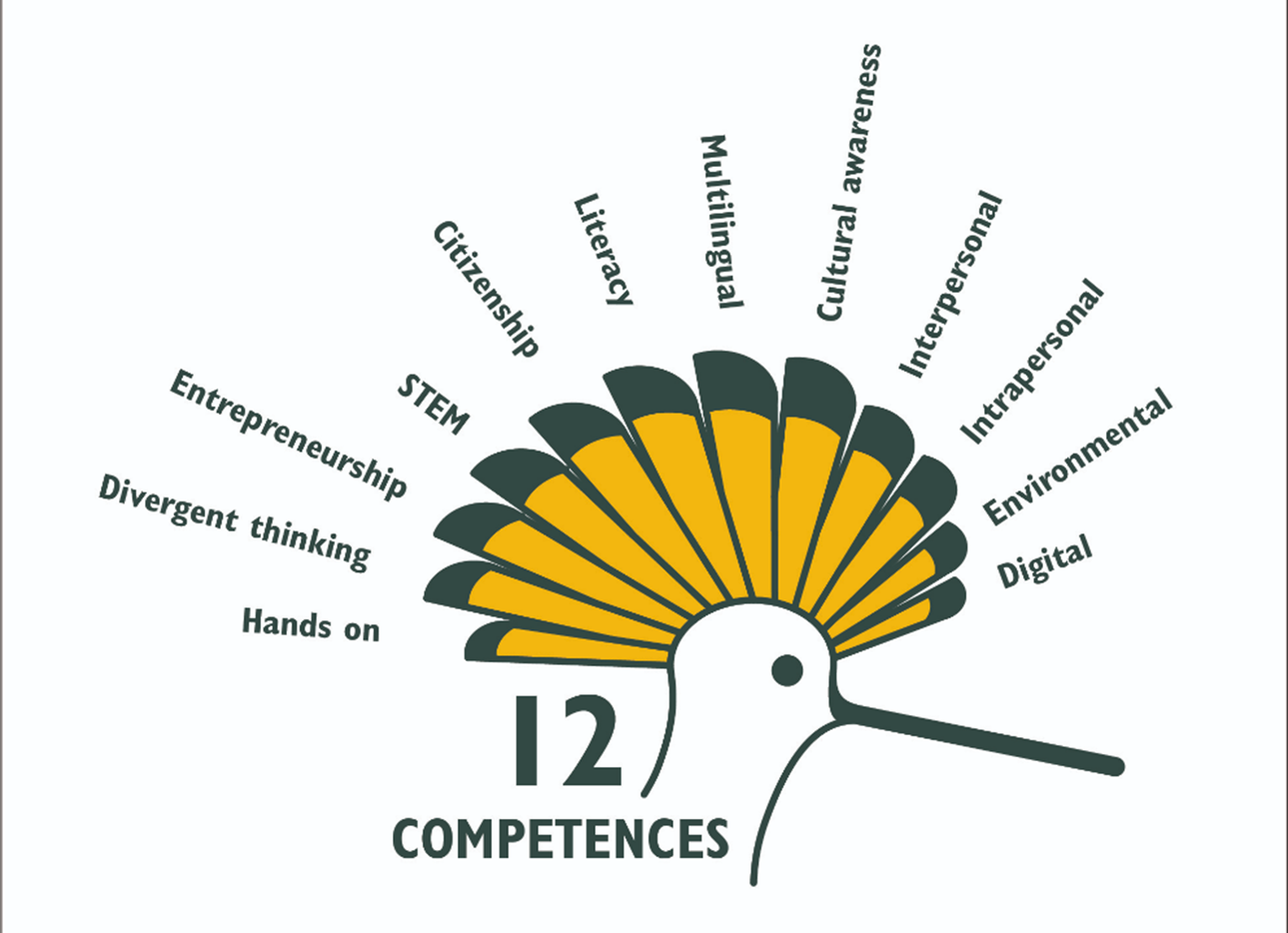
Further reading about the Youthpass and the experiences of our ESC volunteers:
https://www.greensteps.me/library/on-21st-century-competencies-.php
https://www.greensteps.me/library/one-year-volunteering-with-green-steps.php
https://www.greensteps.me/library/one-year-of-volunteering-with-green-steps.php
To subscribe to our Newsletter:
https://www.greensteps.me/membership.php





